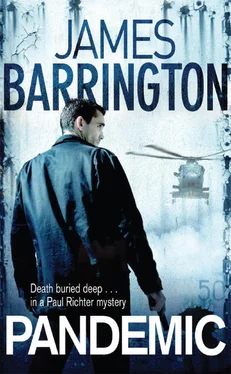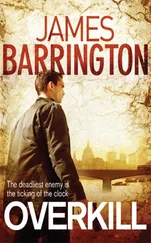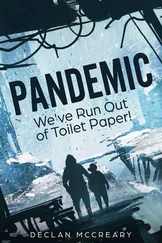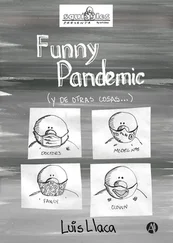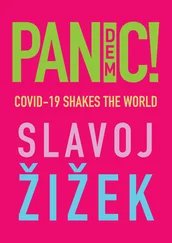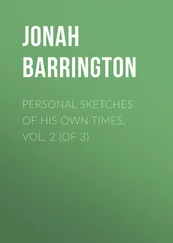Between Gavdopoúla and Gávdos, Eastern Mediterranean
In a sudden flurry of bubbles and foam, Spiros Aristides’s head broke the slightly choppy surface of the Mediterranean less than a metre from the stern of the Nicos . Immediately the Greek stretched out his hand and grabbed the diving ladder. He reached down, pulled off his fins and tossed them on board, and followed them with his mask. Then he climbed up the ladder and into the boat, shrugged off his scuba set and placed it carefully in a rack on the starboard side. The racks were covered with a tarpaulin whenever the boat was in harbour, but at sea Aristides didn’t bother.
There was a practised haste in his movements. Decompression stops had kept him below the surface for the better part of fifty minutes, and Aristides was eager to get himself and his prize back to his house in Kandíra as soon as possible.
He pulled off the neoprene hood and unzipped and removed his wetsuit jacket – it was cold at the depths he had dived to, but very warm now he was back at the surface – and next his gloves, then rummaged in a locker until he found another pair of gloves of an entirely different type. These were tough workman’s gloves made of stiff canvas, and with leather strengthening patches sewn onto the palms.
Pulling on the gloves, Aristides stepped over to the port side of the Nicos and reached down. Securely attached to two cleats was a one-centimetre-diameter orange nylon rope, which descended vertically into the azure waters of the Mediterranean. Taking a firm grip, Aristides began hauling the rope inboard, hand over hand. The first scuba set appeared in seconds, and he paused only to detach it and place it carefully beside him before continuing to pull on the rope.
Within five minutes, Aristides had three scuba sets sitting on the bottom of the boat – he’d used them all during his decompression stops on the way up to the surface – and some eighty metres of orange rope coiled about him. But still he hauled on the rope. Finally he saw a glint of something metallic in the water below him, and pulled more gently, stopping when the object hung suspended just below the surface of the sea, and he then expertly secured the rope around the cleats. He walked back to the wheelhouse where he had an unobstructed view, and surveyed the sea around him carefully, in a complete circle, before walking back to resume hauling on the rope after he felt quite certain nobody could observe him.
Twenty seconds later, Aristides was crouching in the bottom of the Nicos to untie the rope from around the metal briefcase he’d pulled from the wrecked aircraft.
Five minutes after that, all the scuba sets were secured in their racks under the concealing tarpaulin, the orange rope was coiled and stowed in a seaman-like fashion, the lead weight he’d used to anchor the rope was back in its locker, and the briefcase was hidden below a set of foul-weather gear on the floor of the wheelhouse. The Nicos was under way, making directly for Kandíra at about two knots faster than her usual cruising speed. Spiros Aristides was a methodical man, but today he was a methodical man in a hurry.
A little under three hours later, he unlatched the door of his small white-washed house, opened it and walked through the tiny hall into the main room. Light from the afternoon sun streamed through the closed slatted-wood shutters, creating Morse-code patterns across the rough tiled floor, as dust-motes danced in the air. Aristides switched on the overhead light and lowered his large canvas sack to the floor.
Then he walked back into the hall, opened the door and looked up and down the dusty street. Nobody in sight, and nothing moving apart from an elderly marmalade cat cleaning itself in the shade of the fig tree on the other side of the narrow lane. No sound but the ever-present cicadas zithering their drowsy salute to the late-afternoon sun, that was now shading into evening. It was a good time to return home for a man who didn’t particularly want to meet any of his neighbours. Aristides nodded his satisfaction, pulled the door closed, locked it and walked back to where he’d placed the sack.
To one side of the room was a small sturdy oak table and two upright chairs, the table still bearing the remains of Aristides’s simple breakfast – a bowl containing a few black olives, a small piece of feta cheese on a plate, and a cup half-full of the thick black coffee he favoured. He flapped his hand ineffectively at the flies crawling sluggishly over the remnants, then removed the debris to the kitchen. After that he gave the top of the table a cursory wipe with a damp cloth. Before doing anything else, Aristides walked across the room and seized the standard lamp that stood next to one of the easy chairs positioned either side of the small fireplace. He dragged it across to the table, stretching it to the very end of its lead and switched it on.
Bending down, he loosened the draw-string closing the neck of the sack, then carried his prize to the table and put it down carefully. He’d scraped off most of the marine growth before he’d started the Gardner diesel of the Nicos and hauled up the anchor. His neighbours were quite used to the smell of decaying seaweed emanating from his property, but he would still rather avoid them asking awkward questions.
The case was bulky, in size about mid-way between a briefcase and a small suitcase. It was made of metal – steel or perhaps aluminium – and had originally been covered with leather or plastic since in places there were still small patches of coarse, dark material adhering to it. Aristides pulled a clasp knife from his pocket and snapped it open, then ran the point of it lightly along the side of the case for a couple of centimetres. The knifepoint barely scratched the metal, so he knew it was steel.
When he’d hauled it out of the sea and into the Nicos , Aristides had been surprised at how light in weight his discovery seemed. He’d realized, because of the way he’d found it floating, that it was airtight, but he had still been hoping for something of substance inside it.
He sat down at the oak table and studied the outside of the case for a few moments. There were no distinctive markings of any sort that he could see, not even a manufacturer’s name or number. The case had one large central catch and a lock on either side of it, both quite simple affairs and each with an over-centre latch holding the lid closed. Aristides guessed that the primary security of the case and its contents had been the man carrying it, whose wrist had originally been secured to the handcuff still dangling from a steel chain welded to the case – a man whose bones now lay lost and unremembered ninety feet below the surface of the Mediterranean.
Underneath the old stone sink in his kitchen, Aristides kept a metal toolbox containing an assortment of screwdrivers, pliers, files and a hammer, useful items for tackling the odd household problem. He got up to collect the toolbox and placed it beside the mysterious case on the table. He selected a small screwdriver and measured the size of its point against the keyhole in one of the locks. A little too small. He picked one slightly larger, stuck the point into the keyhole and gave the handle a sharp rap with the hammer. The point drove about half a centimetre into the lock. Aristides seized the handle firmly and twisted the screwdriver – gently at first, then with increasing force. With a snap, the lock gave, the screwdriver turned, and Aristides freed the latch.
He pulled the tool out of the ruined lock and repeated the treatment on the second one. The catch, between them, had no lock, so he simply unclipped it and eased the lid open slightly. There was a sudden hiss of escaping air. Aristides leaned back, then opened the lid all the way and peered cautiously inside.
Читать дальше
